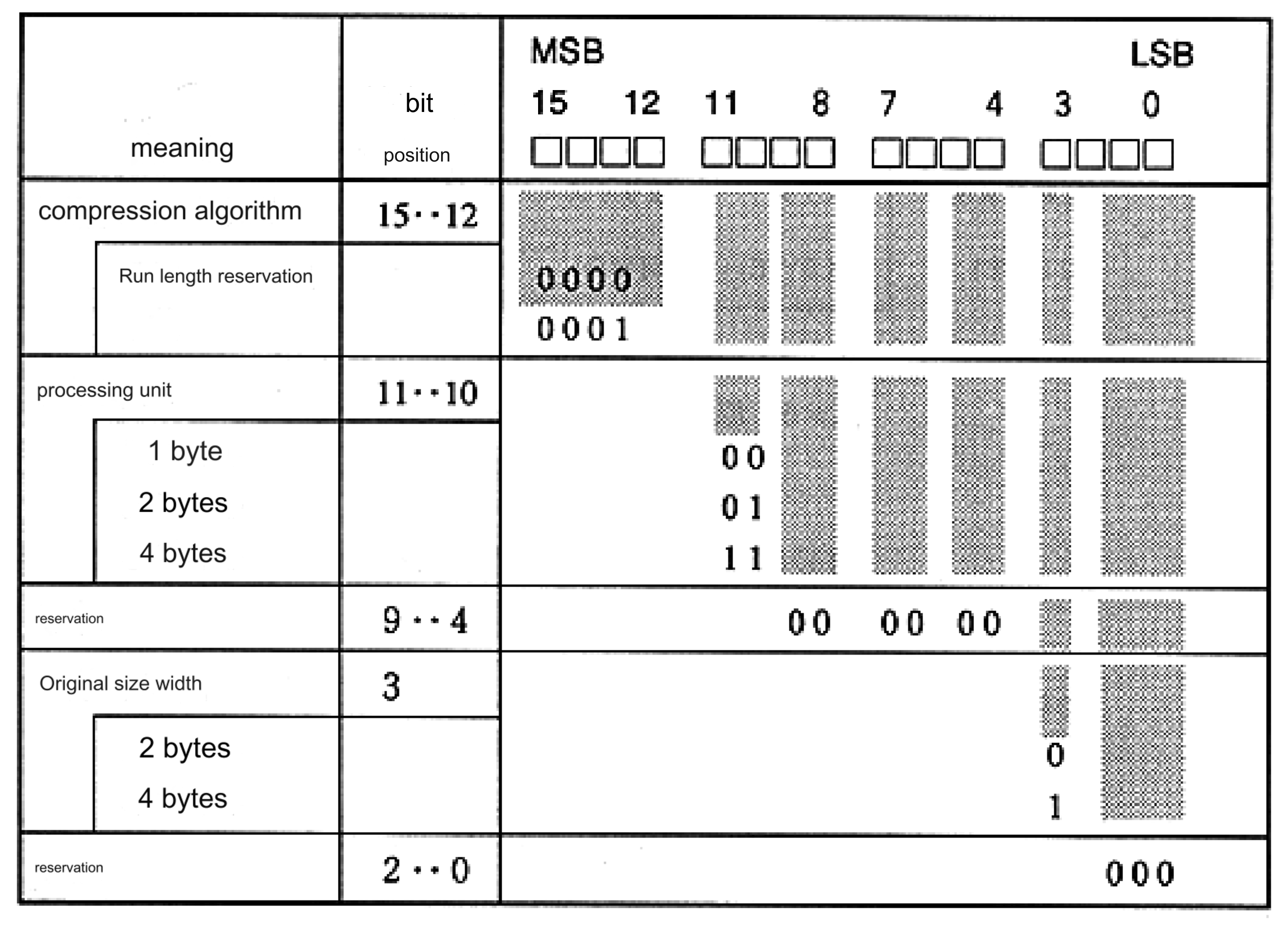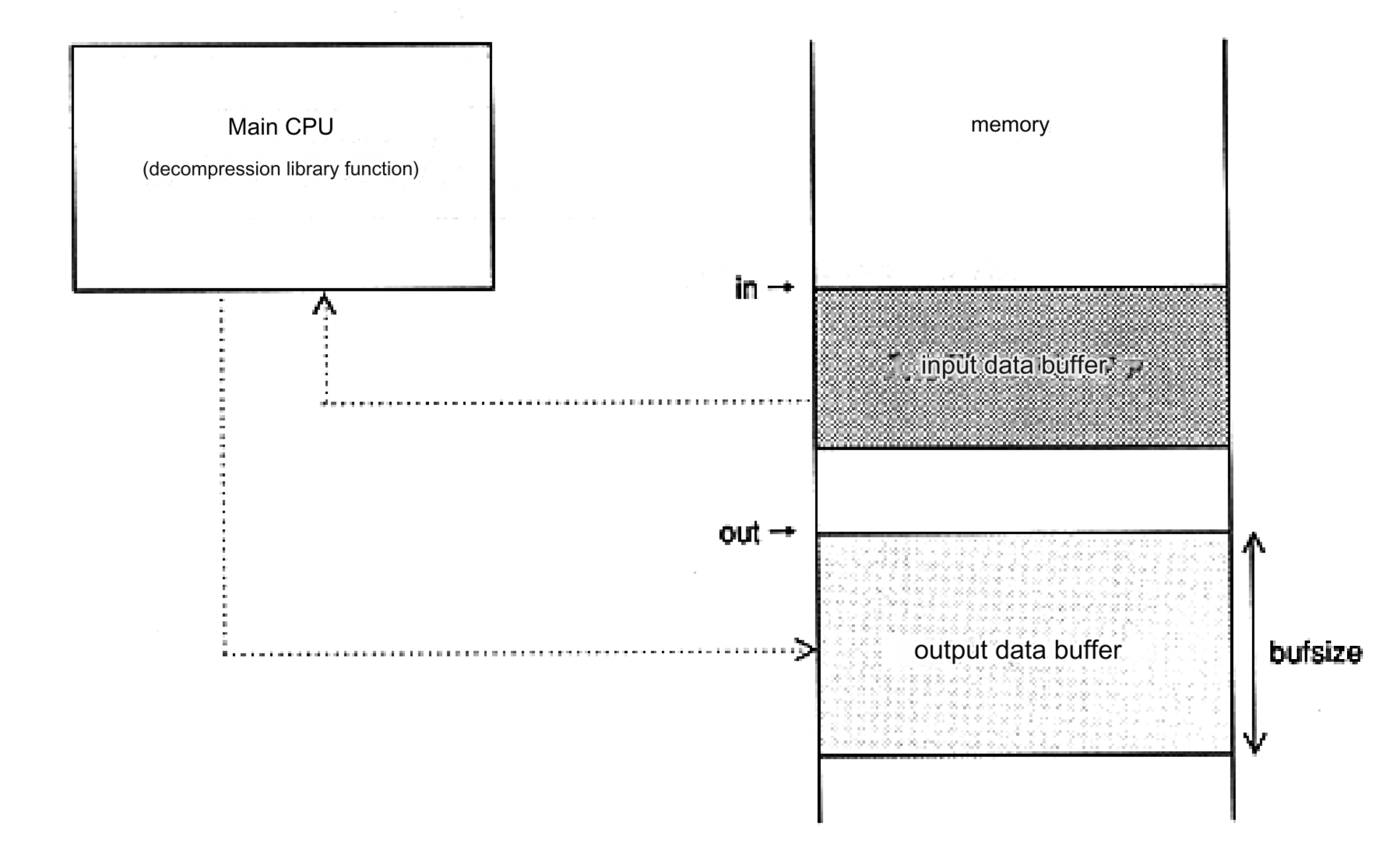


Figure 1.3 Run-length compressed file format

1.3 Decompression library
[overview]
Compressed data can be stored as a separate file on a CD-ROM or in any other way. However, when decompressing, the decompression library is started by specifying input and output data buffers in memory that can be accessed directly from the main CPU.
Users of the decompression library must allocate both of these buffers and specify their addresses to library functions.
For example, when reading input data from a CD and decompressing it, it is necessary to read the input data for one decompression process to the end into memory before starting the decompression library function.
The user also informs the decompression library functions of the output data buffer size. If the decompressed data exceeds this size, the library function will not write to the position beyond the size and will interrupt processing. You can also use this function to intentionally decompress part way through the process.
However, there is no function to restart the interrupted decompression process.
The following diagram provides an overview of the decompression process.

in: Input buffer start address. Align to 4-byte boundaries. out: Output buffer start address. Align to 4-byte boundaries. bufsize: Output buffer size. An integer multiple of the number of processing unit bytes.
[Module configuration]
If you want to link only the bare minimum of object code, you can use low-level functions. In this case, care must be taken to ensure that the operations do not differ from those on the compression tool side.
The following diagram shows the module structure of the decompression library.
Figure 1.5 Module configuration
[Example of use]
When invoking the function, it is assumed that the compressed data is in memory that is directly accessible to the main CPU.
#include "cmplib.h"
/* Compress using the compressed data run-length method,
Convert to compressed file data with binary text converter */
char comdata[] = {
0x10, 0x01, 0x04, ・・・・・・・・・
:
:
:
}
/* Decompression data buffer (secure a size not smaller than the size before compression) */
char outputbuf[4096];
:
:
:
−−−−−−−−−−−−−−−−−−−−−−−−−−−−−−−−−−−−−−−
main()
{
/* Decompression data pointer */
char *buf;
/* Set at the beginning of the decompressed data buffer */
bufp = outputbuf;
/* Run-length dictionary expansion */
CMP_DecRunlen(cmpdata, &bufp, sizeof(outputbuf));
/* Use decompressed data */
:
:
:
}
#include "sega_gfs.h"
#include "cmplib.h"
/* File reading buffer */
Uint8 readbuf[READ_SIZE]
/* Decompression data buffer */
Uint8 outputbuf[4096]
−−−−−−−−−−−−−−−−−−−−−−−−−−−−−−−−−−−−−−−
main()
{
GfsFid fid; /* File size identifier */
Sint32 fsize; /* file size */
char *bufp;
fid = 5; /* Specify compressed data file identifier */
/* Batch loading files */
fsize = GFS_Load(fid, 0, readbuf,READBUF_SIZE);
/* Set at the beginning of the decompressed data buffer */
bufp = outputbuf;
/* Run length extension */
CMP_DecRanlen(readbuf, &bufp, sizeof(outoutbuf));
/* Use decompressed data */
:
:
:
}
 ★ PROGRAMMER'S GUIDE ★ Compression/decompression library
★ PROGRAMMER'S GUIDE ★ Compression/decompression library